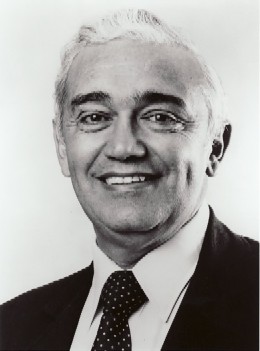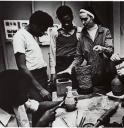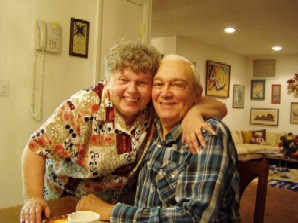“This is precisely the time when artists go to work. There is no place for despair, no time for self-pity, no need for silence, no room for fear. We speak, we write, we do language. That is how civilizations heal.”
~ Toni Morrison
Category: Quotables
The Writing Path
“There is no royal path to good writing; and such paths as do exist do not lead through neat critical gardens, various as they are, but through the jungles of self, the world, and of craft.” — Jessamyn West, Saturday Review, September 21, 1957.
“The writer writes in order to teach himself, to understand himself, to satisfy himself; the publishing of his ideas, though it brings gratification, is a curious anticlimax.” — Alfred Kazin, Think, February 1963.
Dance Lessons
“If you learn to dance with people, with life, then nothing wrong can happen to you.” — Hugues de Montalembert
I found this quotation on a Swan Lake Samba Girl‘s blog (by way of About Last Night). I am assuming that the Montalembert in question is the painter who was blinded during a mugging in New York, after which he travelled, wrote books, and became the subject of a doumentary titled Black Sun. (Read a recent interview here and a 2006 review here.)
It’s a nice quotation all by itself, but it dovetails nicely with my recent thoughts about what I believe to be the fundamental problem with our society today — a pervading attitude of individual entitlement and the rest of the world be damned. We’re all dancing alone.
On radio this morning I heard a story about a GOP Nanny contest to determine which republican politician has sinned most in terms of advocating for more government interference in our lifestyles, rather than less — less government intrusion being one of the basic principles of republican thought. Although I am not a republican (not sure that i am a democrat either, but that’s another topic) I am pro freedom and pro the right to make personal decisions for myself. HOWEVER I believe that the right must be moderated by consideration of others. “Do unto others as you would have them do unto you” is a thought that not only has receded from our collective consciouness, it’s been replaced by “do unto others before they do you in, and get what you can while you’re at it.”
I’m not a history buff and I’ve never studied law, but I imagine that it is after people get hurt that laws come into being to protect the rest of us from harm. With merger-mania being rampant, big business trampling mom & pop endeavors, corporate greed (perhaps driven by the need to please a few investors) disenfranchising its workers and even its customers, someone has got to draw some lines somewhere. Just a we hope that our children will play nicely, and fair, with one another, at some point a parent has to step in and protect. I’d much prefer self-regulation, but today self-regulation in the grown-up world is interpreted to mean hire a passel of lawyers to find the loopholes.
There once was a time when community worked together, helped one another as a matter of course. Perhaps such activities were fostered and held together by clergy, and maybe that’s what is driving the Christian Right. I have a spiritual side, but I am not, by any stretch of the imagaination, what you would call “a religious person.” I think that organized religions are man-made by power-seekers who, like todays regime, use fear to govern. Yet I do feel for those who seek comfort.
We hear a lot of talk today about saving our environment, reducing emmissions and such. Last night I heard the automotive industry experts opine that there was no point in making cars run more efficiently because we morons would just drive more. The solution, they say, is to drive less. Okay, but now that the majority of workers can no longer afford to live anywhere near where they work, how are they supposed to traverse those 40, 50, 60+ miles to the job. Public transportation may be effective in New York, DC, Boston…but elsewhere….fuggedaboutit.
Some people would really like to help others in need but most either can’t or don’t know how. Some see problems as so big that they can’t conceive of how they, as individuals, could make much of a difference. Some are just one step ahead of the game and struggling to stay afloat themselves. That’s why we all watch Extreme Home Makeover — it makes us feel better to see that someone is getting some help. Of course I gues that’s why Survivor and such shows are also popular…we all want to believe that we can, well, survive.
But getting back to Montalembert’s quotation, I think we would all do well to learn to dance with people. And, to take it literally, I would suggest not just any dancing — I would prescribe folk dancing, square dancing, even line dancing, to foster a sense of community and sharing. Besides it’s fun.
Les “Coach” Fernandez R.I.P.
Foreword written on Saturday:
What a pathetic excuse for a writer I must be if words fail me at a time when it means the most. Instead of tears, I’m wading in a puddle of platitudes….â€I’m so very sorry for your loss.†Clichés run amok in my brain – my heart is heavy (as lead), my heart goes out to you — out where? And why is loss such a palpable ache? I am constantly searching for the universality in a story, so why do I seize up when universality smacks me in the gut?
Perhaps because I am human.
Yes.
No.
Yes, but I am a writer. I refuse to be pathetic. Ass in chair, open a vein, write!
A good man died yesterday morning. Admittedly lots of good men died yesterday. Some died in the line of duty, while others simply reached the end of their line. Some died heroically, and others died horrifically. Some died before their time, others finally expended the borrowed time they had been given. The good man whose loss saddens me today was a friend to me for 40 years.
###
 April 30, 1991 was declared “Les Fernandez Day” in Westchester County. Now, sixteen years to the day, Les “Coach†Fernandez is laid to rest. He died Friday morning from congestive heart failure, one week after celebrating his 80th birthday with family and friends.
April 30, 1991 was declared “Les Fernandez Day” in Westchester County. Now, sixteen years to the day, Les “Coach†Fernandez is laid to rest. He died Friday morning from congestive heart failure, one week after celebrating his 80th birthday with family and friends.
I spoke to him the night before the big party and I told him how very much I wanted to be there, as I had been for so many of the milestones though the years – The Cage 25th Anniversary, Les’ wedding (Coach’s oldest son and namesake), a 50th birthday party or two, even an occasional Thanksgiving and Christmas dinner, Coach’s 70th birthday bash, the renewal of Coach & Nat’s wedding vows on their 50th anniversary….. and some scary times too, Coach’s car crash, Les’ heart surgery…. I won’t call it a premonition, but I somehow knew this party would be Coach’s last big event, but I could not go, not this time. He knew that I was there in spirit, just as I know that his spirit lives on in all of us whose lives he touched.
Coach held many jobs ranging from boxing coach to psychotherapist, but what he was, always, was a youth worker. From his undergrad days as a “street gang worker” for the Police Athletic League back in the late 1940s, until the day he retired in 1991 after 29 years with The Cage Teen Center (26 as its Executive Director), his focus and his gift was in helping young people to cope and excel.
He believed that school dropouts, drug abusers, runaways, youthful offenders, outcasts and young adults with family, social or even police problems do not have to be alienated from society’s mainstream forever. He recognized that these kids, who came from all walks of life — all races, socioeconomic strata, educational levels, from all parts of town – had one thing in common: their basic psychological needs, to love and be loved and to feel worthwhile to themselves and to others, had not been fulfilled. So one-on-one, one at a time, sometimes in a boxing ring or on a basketball court, sometimes folding his 6-foot-plus frame into a desk chair in a classroom on the top floor of the rectory of Grace Church, he touched the lives of many.
 When Coach first started working at the Cage Teen Center in 1962, it was little more than a deserted basement bowling alley used as a drop-in center. Teen strife caused problems and the adults in charge, not being professionals, were unable to control the situation. They hired Coach as a part time group worker, then, in 1965, they appointed him to the full time position of Executive Director.
When Coach first started working at the Cage Teen Center in 1962, it was little more than a deserted basement bowling alley used as a drop-in center. Teen strife caused problems and the adults in charge, not being professionals, were unable to control the situation. They hired Coach as a part time group worker, then, in 1965, they appointed him to the full time position of Executive Director.
 The following year The Cage Teen Center youth made a film entitled “Tell It Like It Is” which not only gave them a voice, but helped the various community agencies to better understand their problems. That was also the year that Henry Jeter, 175 lbs., Light Heavyweight, became the first member of The Cage Teen Center Boxing Program to win a Golden Gloves Championship at the old Madison Square Garden.
The following year The Cage Teen Center youth made a film entitled “Tell It Like It Is” which not only gave them a voice, but helped the various community agencies to better understand their problems. That was also the year that Henry Jeter, 175 lbs., Light Heavyweight, became the first member of The Cage Teen Center Boxing Program to win a Golden Gloves Championship at the old Madison Square Garden.
In 1967, Coach used a $25,000 Federal Government grant to launch EduCage, an Alternative High School Program, that included academic subjects, arts, and job skills ranging from typing to automotive training. A year later he established the first in-school Infant Care Center in New York State, offering parenting skills to young mothers and fathers, and daycare services for Educage students with babies. Another new program to emerge that year was The Cage Drug Prevention Center, the first official drug treatment program in Westchester County. Whenever an obstacle arose to prevent a young person from achieving more, Coach sought and fought for solutions.




He was one of the most dedicated men I have ever known, seemingly tireless, always on the go. He served on city and county boards and committees too numerous to mention, lectured and consulted with organizations, schools and agencies interested in the problems of young people, and even testified before the House Sub-Committee on Crime. Throughout the years he maintained his State Certification as an Industrial Arts Teacher, Guidance Counselor, Secondary School Principal and School Administrator and Supervisor, but that was not enough; at a time when most would be planning to retire, he went back to school and earned his Doctorate Degree in Counseling and Human Development a Post Graduate Certificate in Psychotherapy.
 Somehow, on top of all that he did for others, he and his wife Natalie, raised a family — Les, Richie, Don, and Lanette — four remarkable, strong, and loving people who shared their dad with so many other young people who who grew up and remembered Coach with love and appreciation. They wrote to him and his files are overflowing with notes like this one:
Somehow, on top of all that he did for others, he and his wife Natalie, raised a family — Les, Richie, Don, and Lanette — four remarkable, strong, and loving people who shared their dad with so many other young people who who grew up and remembered Coach with love and appreciation. They wrote to him and his files are overflowing with notes like this one:
Educage was the only school I had ever been to where I felt I really belonged, and that the teachers and faculty really cared what happened to me… A lot of us kids lives would’ve gone down the drain if we didn’t get help, and I’ll always remember the dedicated people who were there when we needed them.
One of the many plaques and awards given to Coach bears this quotation from Henry B. Adams: “A teacher affects eternity; he can never tell where his influence stops.” A thought echoed in the letters he treasured, like this one:
You started Educage, in which you have helped hundreds of people like me to get their high school diploma, and furthering their education. Your love and caring have rubbed off on most of us you touch. Because of the love and dedication you showed the youths in past and present, a lot of your ex youths are now in the field of youth counselors…
As a WWII vet, the funeral service will include the flag ceremony and taps. As a beloved leader of the community, the funeral cortege will be accompanied by the White Plains Police Force. Though it may sound hyperbolic, the fact is that over the years Coach touched thousands of lives. He will be honored by many and missed by all.
Words To Live By
A writer friend sent me the following quote:
If you don’t feel that you are possibly on the edge of humiliating yourself, of losing control of the whole thing, then probably what you are doing isn’t very vital. If you don’t feel like you are writing somewhat over your head, why do it? If you don’t have some doubt of your authority to tell this story, then you are not trying to tell enough.
~ John Irving
I might add that this is just as applicable to living in general as to writing in particular.
Rules of Engagement
“The divide is not between the servants and the served, between the leisured and the workers, but between those who are interested in the world and its multiplicity of forms and forces, and those who merely subsist, worrying, or yawning… The world is full of light and life, and the true crime is not to be interested in it.”
–from Elementals: Stories of Fire and Ice, by A.S. Byatt
Pas de Deux
“Life may not be the party we hoped for but while we’re here we might as well dance.” — Maya Angelou
True ease in writing comes from art, not chance,
As those move easiest who have learned to dance.
— Alexander Pope, “Essay on Criticism”
Nothing is more revealing than movement. — Martha Graham
The way people move is their autobiography in motion. — Gerry Spence
We should consider every day lost on which we have not danced at least once. — Friedrich Wilhelm Nietzsche
Dance as if no one’s watching, sing as if no one’s listening, and live everyday as if it were your last. — Irish proverb
God respects us when we work, but loves us when we dance. — Sufi saying
If you can talk, you can sing. If you can walk, you can dance. — African Proverb
Like He Said
“Today we’ve learned to celebrate mediocrity. Back in the day we had creative artists; today we have created artists.†— Lionel Ritchie as quoted today in The New York Times. (Lionel Richie Gets His Groove Back, September 12, 2006)
Lionel who? … Oh, him. Where’s he been all these years? These are not embittered words from a has-been. Having sold 100 million albums worldwide, and with five Grammys an Oscar and a Golden Globe to his name, he’s been living the life in his 30-room mansion in Beverly Hills.
Here’s A Thought
There is no coming to consciousness without pain.
-Carl Jung, psychiatrist (1875-1961)
Like She Said
“I don’t think I can learn from a wild animal how to live in particular . . . but I might learn something of mindlessness, something of the purity of living in the physical senses and the dignity of living without bias or motive.” — Annie Dillard, Pilgrim at Tinker Creek (1973)
